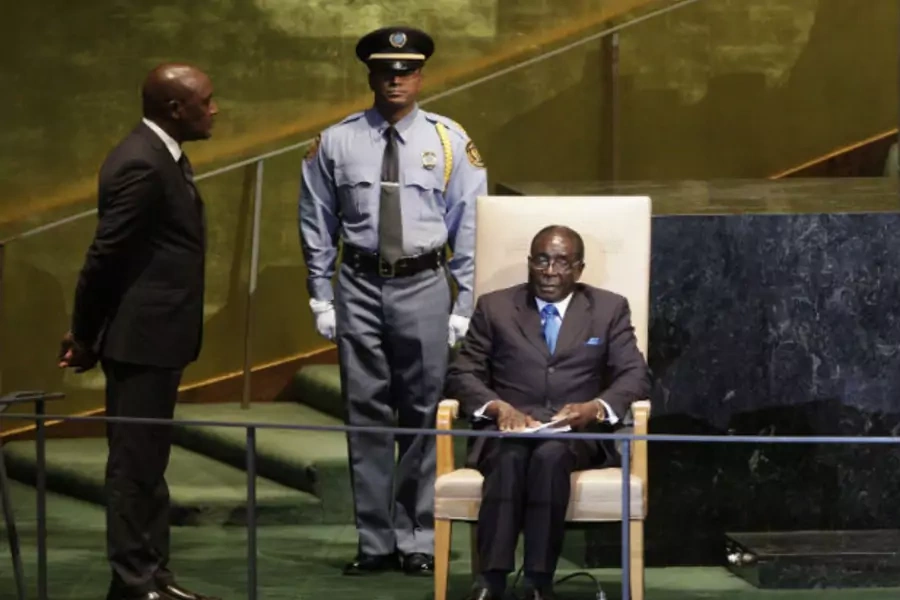More on:
This is a guest post by Nathaniel Glidden, intern for the Council on Foreign Relations Africa Studies program. He is currently pursuing a Master’s in International Affairs with concentrations in Development and Cities & Social Justice at The New School.
The African Union (AU) Summit concluded January 31 in Addis Ababa, Ethiopia. As had been predicted, Zimbabwean president, Robert Mugabe, was named chairman of the AU for 2015.
The largely ceremonial position of AU chairman has a one year term and is generally awarded to the leader of the country hosting the following summit. Notwithstanding its ceremonial nature, the position of AU chairman should represent the AU’s mission of increasing citizens’ quality of life, promoting democratic principles, and protecting human rights.
Yet Mugabe’s record stands in stark contrast to this mission. The ninety-year-old autocratic leader has been Zimbabwe’s president since the country’s independence in 1980. Described as a “reign of terror,” his rule has drawn widespread criticism, and he has been condemned for committing alleged human rights abuses in 2002; for rigging elections; and for enacting policies that led to the collapse of the Zimbabwean economy in 2000.
The response to his appointment has been mixed. While Mugabe enjoys support from AU member states, who ultimately confirmed his chairmanship, the international response has been lukewarm. Globally, Mugabe has long been perceived as a controversial figure. In fact, the European Union (EU) and United States imposed sanctions against him in 2002 and 2003, respectively. In light of his appointment, the EU offered to make some exceptions to his travel ban, so he can attend intergovernmental meetings abroad and fulfill his duties as AU chairman.
Given his track record as Zimbabwe’s president, Mugabe’s chairmanship could blemish the AU’s integrity. A negative perception of the AU’s leadership is problematic given the organization’s ties outside of the continent. Considering its close alignment with the United Nations and its dependence on funding from international donors, which accounted for more than 50 percent of the AU’s 2014 budget, the credibility of the AU is critical. Under questionable leadership, donors to the AU might reconsider their contributions.
The AU currently faces several challenges across the continent: Boko Haram’s insurgencies in Nigeria, falling global oil prices, and civil and ethnic wars across central Africa. A potential loss in funding or credibility could hinder the AU’s ability to act on these issues.
More on:
 Online Store
Online Store
